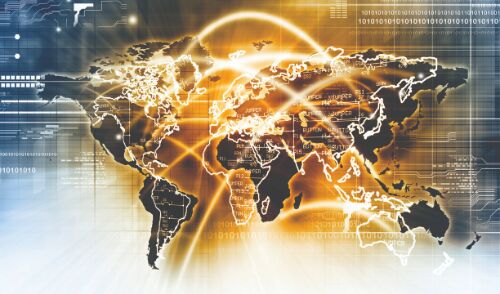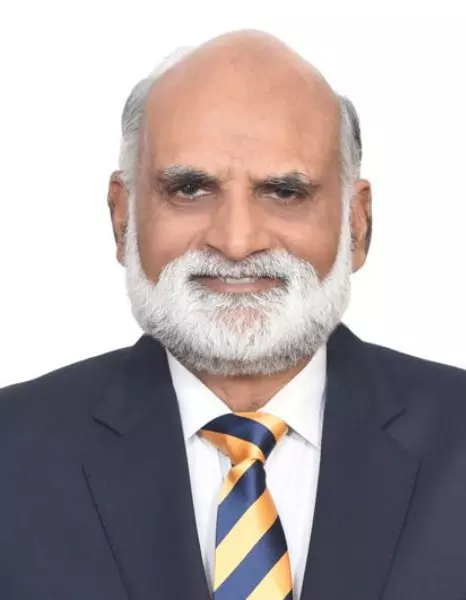A multi-pronged threat
Illicit trades’ widespread socio-economic ramifications can be curbed if domestic markets are fostered

In 2005, Moises in his well-known book 'Illicit' stated, "Global criminal activities are transforming the international system, upending the rules, creating new players, and reconfiguring power in international politics and economics." Even after a decade of those alarming words, illicit trading activities are distorting local economies, diminishing legitimate business revenues, fueling conflict, and deteriorating social conditions.
According to the World Economic Forum, illicit trade creates an annual drain on the global economy of USD 2.2 trillion – nearly 3 per cent of the world's economy. If illicit trade were a country, its economy would be larger than that of Brazil, Italy, or Canada, and as large as the combine of Mexico and Indonesia.
Activities involving illicit trade such as smuggling of goods across borders is a lucrative business, with criminals relying on the continued high demand for cheap goods coupled with low production and distribution costs. This illegal activity takes advantage of unaware consumers and bargain-hunters, exploiting people's appetite for brands or simply their financial situation.
There are many reasons for the smugglers to get into and expand their network. Criminal entrepreneurs involved in such nefarious activities are opportunistic by nature and seek to exploit market and regulatory arbitrage opportunities for economic gain. High taxation on goods provides a huge arbitrage prospect — it is a high profit, as these products evade the duties and taxes that need to be paid.
This not only has a financial impact but also proves to be a physical threat to the consumers who in the process are exposed to severe health and safety risks as there is no guarantee given for such products and they do not pass any mandatory benchmarking and standardisation processes.
More so, smugglers, by evading legal duties and taxes, are an extra burden for the governments' budget. It will be appropriate to say that it is a twofold blow, not only is the government losing revenue, but it is also straining its exchequer due to increased spend on enforcement to check such criminal activities. Further, as developing countries rely more on indirect taxes as compared to direct taxes, low indirect tax collections may have harmful consequences for the government's ability to provide public goods and services such as quality healthcare, education, infrastructure etc. The provision of public welfare resources increases the productivity of the economy, and thus not having them has a negative effect on development and economic growth. To add to it, the police and other enforcement agencies are also hit by the resource crunch which exacerbates the problem of such grey market operations.
Global estimates indicate that due to illicit trade, the wider social, investment and criminal enforcement costs could touch USD 4.2 trillion by 2022, putting at risk 5.4 million "legitimate jobs". In the Indian context, due to smuggling activities, the economy incurred a loss of Rs 1,17,253 crore, and a further loss of 16.36 lakh livelihood opportunities during 2017-18 in just five key sectors — Textiles, Tobacco Products (Cigarettes), Readymade Garments, Capital Goods (Machinery and Parts) and Consumer (Electronics) Durables.
Besides unemployment and massive financial losses, smuggling also creates large-scale destabilization by fomenting crime, generating black money and funding devastating terror groups. Today, it is well known that the most notorious terrorist organizations of the world like AL-Qaeda, ISIS, Hezabollah and many more are into illicit trade of oil, cigarettes, clothing, bags, mobile phones, antiques etc. They use the proceeds of this to fund their terror operations and play havoc with the lives of the people. As per estimates by UNODC, the profits that the transnational organized crime derived from the shadow industries have been estimated to be as high as USD 870 billion which is equivalent to 1.5 per cent of the global GDP. It is also seen that prominent terrorist organisations rely on illicit trade for financing up to 20 per cent of their anti-social operations.
The World Customs Journal states that policymakers often underestimate how flexible, innovative and influential transnational criminal organisations have become. We may want to believe that the right mix of policy, regulation and law enforcement will somehow halt the flow of illegal and smuggled goods, but the reality is that illicit trade is a complex phenomenon that requires a much deeper understanding and a multi-faceted solution-based approach.
Over the years, several initiatives, collaborations, stakeholder consultations, policy and legislative works have been done internationally to curb this threat. Industry, policymakers and enforcement agencies have come together through effective public-private partnerships to meet the governance and security challenges that threaten the prosperity of our economies and integrity of our markets and the health and safety of our people. Global programmes such as INTERPOL's trafficking in illicit goods and counterfeiting programme, OECD's Task Force on Countering Illicit Trade along with several initiatives by WIPO, EUROPOL, UNODC etc. addressing transnational organised crimes and promoting legitimate business practices have been working concertedly to address this issue. In India, FICCI's CASCADE (Committee Against Smuggling and Counterfeiting Activities Destroying the Economy) is a dedicated forum which works in this direction. It has, over the years, engaged with the industry, government, enforcement agencies, media and general consumers to deeply dive into the issue and provide effective strategies to mitigate this challenge.
The domestic environment of the country affects the demand or supply and the final consumption of illicit or smuggled goods. India ranks weakly at 60th place among 84 countries on the demand and supply parameter of the global illicit trade environment index. But it is the Indian Prime Minister's clarion call of Vocal for Local that will be unsettling for the illicit traders and smugglers. After all, if more products are manufactured within the nation, the reliance on foreign goods will gradually come down and people will increasingly buy locally made goods and the footprint and profit margins of all involved in smuggling will begin to reduce. This along with measures such as leveraging technology for trade facilitation and monitoring, better coordination with anti-smuggling agencies, international collaborations and cooperation will hopefully make the desired dent and disincentivize this complex adversary.
The writer is the Chairman, FICCI CASCADEand Senior VP, Corporate Affairs, ITC Ltd. Views expressed are personal



